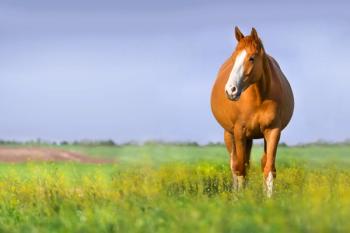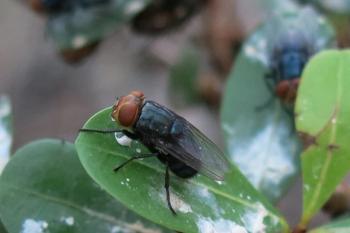
EEE takes its toll nationwide Florida reports most cases; Massachusetts reports high-profile hits
A total of 104 cases of EEE had been confirmed in horses nationwide at presstime, according to the CDC.
BRENTWOOD, N.H.—New Hampshire reported a rash of Eastern Equine Encephalitis (EEE) in late September when three communities detected the illness in mosquitoes, prompting health officials to test 22 communities in Rockingham County to track the spread of the virus, which has been absent from the state for 22 years.
Three horses in the state had tested positive for EEE at presstime, according to the New Hampshire Department of Health and Human Services; one horse died Sept. 24, and cases are expected to rise due to outbreaks in neighboring Massachusetts, which reported five confirmed deaths from EEE in 2004 through September.
One of the fatalities was Olympic Angus, a 3-year-old Standardbred who competed this summer at Rockingham Park in Salem, N.H. He died in Billerica, Mass., a town about 20 miles northwest of Suffolk Downs and 20 miles south of Rockingham.
Another fatality was Formal Hunch, who was from the first crop of the Massachusetts-based stallion Solid Hunch. The Thoroughbred yearling was vaccinated against the disease, but her age was a factor in contracting the virus, says breeder Velma Emery.
"She was vaccinated in the spring, but because she was young, perhaps she didn't have time for the immunities to become strong," she says.
In Baton Rouge, La., the state Department of Health and Hospitals reported that 10 horses have died from EEE this year, and another 10 are believed to have had the disease.
States with the largest number of cases are Florida, Georgia, Massachusetts and New Jersey, according to the Center for Disease Control and Prevention (CDC) in Atlanta.
Case count
A total of 104 cases of EEE had been confirmed in horses nationwide at presstime, according to Elwin Grant, a CDC spokesperson.
Florida reported the most cases of the virus with more than 30 to date.
It is generally believed that equines are dead-end hosts, however, experimental studies have shown viremias high enough to infect mosquitoes, according to a study conducted by the University of Florida.
Research
Laboratory studies have evaluated the vector potential of many mosquito species.
Laboratory infection and transmission studies classified Culiseta melanura as only a fair to poor vector, according to the study.
EEE can be isolated from different Aedes species and different Culex species in different parts of the continent. EEE virus has been isolated from a single species, Coquillettidia perturbans, in many parts of the virus range, including Georgia, Florida, New York, Michigan, Massachusetts and New Jersey according to the Florida study.
Cq. perturbans is an opportunistic feeder and feeds equally on birds and mammals, avidly on man and horses, making it a potential vector.
Adult mosquito population densities are closely linked to environmental conditions, and densities are highest during years with high rainfall. Associations between EEE outbreaks and excessive rainfall have been documented. Mosquito population density is not a presage of detectable epidemic EEE activity.
The total number of equine fatalities were not available through CDC at presstime.
Prevention
An equine vaccine is available. It is a killed vaccine that is safe to use in all horses, including pregnant mares and foals. It is recommended to vaccinate all horses at least twice a year and up to four times in Florida, where the vector season is prolonged, according to research conducted by the United States Department of Agriculture, the University of Florida and Jefferson County.
Foals from unvaccinated mares may be vaccinated at any age, but they should be revaccinated at 6 months and 1 year of age to ensure adequate protection.
Insect repellents should be used as needed in horses according to the research to prevent the spread of the virus, even with vaccinated animals. Horses should be kept in stalls with screens and fans at dusk and dawn, the times where mosquitoes are the most active.
Newsletter
From exam room tips to practice management insights, get trusted veterinary news delivered straight to your inbox—subscribe to dvm360.





